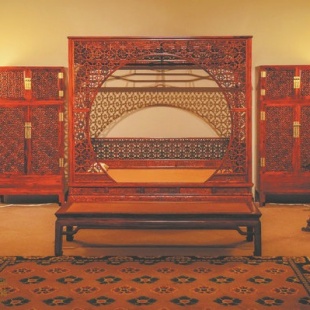The extravagance of simplicity
A seasoned craftsman's 'fever' for classical furniture produces pieces of timeless elegance, Lin Qi reports.


Additionally, the fragrance of the precious hardwoods used, such as huanghuali (a variety of rosewood) and zitan (red sandalwood), as well as their natural depth, adds to the beauty of Ming-style furniture, fine and rare pieces of which are sought after by collectors.
Wu has been making Ming-style furniture for over four decades, rejuvenating the tradition subtly both in terms of function and appearance.
Until the publication of several books by Wang Shixiang (1914-2009) in the 1980s on connoisseurship in Ming and Qing furniture, Wu had been a buyer and seller of vintage furniture. Caught up in the wider enthusiasm for the style that the books created both in and out of China, he began to study and collect pieces, eventually coming to focus on the revival of Ming-style furniture.
Over time, Wu has developed principles that have also become industry standards.
He says that he emphasizes structural beauty and that a good piece of furniture should have a silhouette or profile that first catches the attention from afar and then on closer inspection, evokes a warm response.
Wu says that superb craftsmanship is required to achieve this, itself the result of experience and a deep desire for precision. He adds that it is also necessary for the maker to be knowledgeable about hardwood — its qualities, grain and texture — so they can choose the kind of furniture that is best suited to each variety.





































